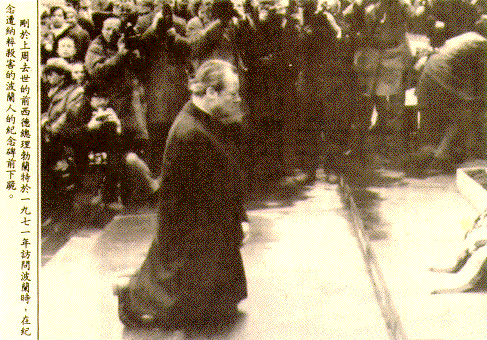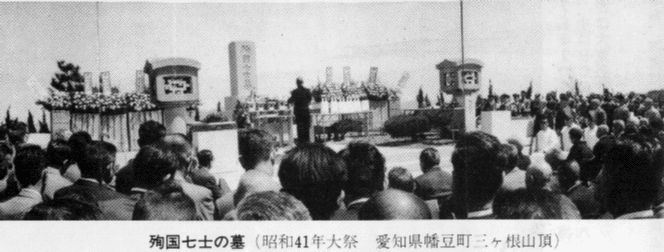Germany's Apology to Its War Victims
and
Japan's Homage to Its War Criminals


During an official visit as chancellor of West Germany to Poland in 1971, Brandt won the praise and respect of the whole world as he knelt in front of the monument built to the memory of Poles fallen as victims of the Nazis. (Contributed by T. W. Kwan)
THE GERMAN GOVERNMENT HAS DECLARED JANUARY 27TH A NATIONAL DAY OF REMEMBRANCE FOR THE VICTIMS OF THE HOLOCAUST IN WORLD WAR TWO.
German president Roman Herzog said the observance of what is being called the "Day of Remembrance of the Victims of National Socialism" is meant to express sorrow for suffering and loss, to remember the victims and to guard against renewal of Nazism.
In a statement issued Wednesday in Bonn, the president said the Nazi terror must never be forgotten. He added, the memory must also remind future generations to be watchful.
The date was chosen to mark January 27th, 1945, the day Soviet soldiers liberated the Auschwitz concentration camp.
The day will not be a public holiday, but will be marked in schools. Germany's Bundestag, the lower house of parliament, also plans a special commemoration to mark the national day.
03-jan-96 8:44 am est (1344 utc) Source: VOA

Japanese diet members commemorating war criminals including General Matsui Iwane who was responsible for the Nanjing Massacre.
Japanese prime minister Ryutaro Hashimoto's homage to war criminals
Comparing the two different attitudes
An article in GB Chinese
Why No Japanese Apology? (29/7/96)
The Legacy of War in Germany and Japan
Contributed by Tze-wan Kwan, RIH, CUHK
About Willi Brandt